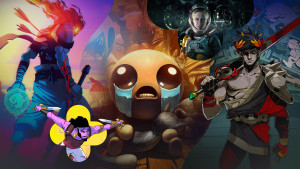Please support Game Informer. Print magazine subscriptions are less than $2 per issue
Should The Term "Survival Horror" Die?
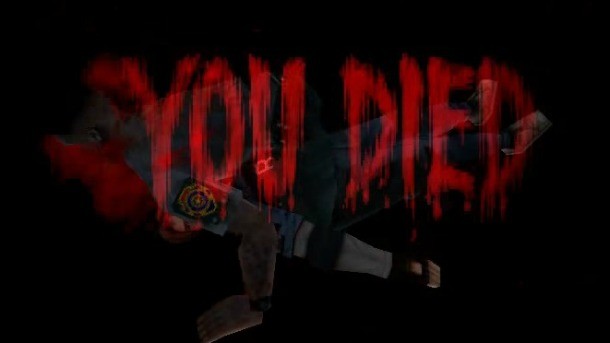
I’ve always considered myself a big survival-horror fan, but the more I thought about it, the less I understand what the term “survival horror” even means – especially in this day and age. I had a conversation with Game Informer’s resident horror expert Tim Turi to find out what exactly we think survival horror is, if it’s even a genre that still exists today, and whether or not the term should be shot in the head and burned so it doesn’t come back.
Harry: With Evil Within coming out soon, I’ve been thinking a lot lately about what everyone seems to mean when they talk about “survival horror” as a genre. It seems that, especially in recent generations, nobody can quite agree on what it means to be a survival horror game. Whenever a game with horror elements like Dead Space or Resident Evil comes out, some people think it’s a good example of a survival-horror game, and others say it isn’t “horror” enough or it isn’t “survival” enough, etc. So I wanted to talk about survival horror and what role it still has in gaming today.
Tim: Folks always debate about what makes a true “survival horror” game, and I think we’re on the same page in thinking it’s all pretty silly. In what games aren’t you trying to survive? That can describe so many games. You can run low on health and ammo in everything from BioShock to Uncharted, so all that we’re left with is straight-up “horror.” Capcom is big on coining new genre names, and somehow “survival horror” just stuck after Resident Evil first came out. Why do you think that term still persists, unlike “stylish action” for example?
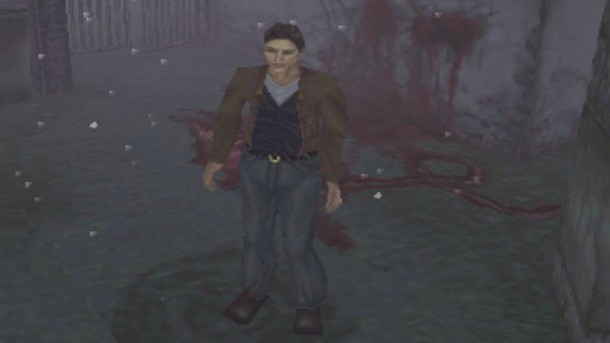
Harry: I suppose the fact that “survival horror” remains a pervasive label could mostly be wrapped up in nostalgia, but I’ve always felt like there was something to it. To me it almost signifies a certain type of game that came out at a certain time. When I think about survival horror, I think pre-rendered backgrounds; usually fixed, strange camera angles; stiff controls; limited ammo; and purposefully underdeveloped fighting mechanics. So basically, the early Resident Evils and Silent Hill are where I go. This actually brings me around to a related point I wanted to talk about: Do you think that “classic” survival horror is still possible or desirable today? A lot of the mechanics in Resident Evil or Silent Hill that became iconic survival horror traits like the stiff tank controls, clumsy combat, and murky visuals, don’t seem like they’d fly today. Is there still a place for survival horror – that considered – or are we better off abandoning the term, and maybe the idea?
Tim: Well, to answer the second part of that question, I absolutely think we should abandon the term “survival horror.” I think that “horror” is a perfect term to describe everything from non-combat games like Amnesia: The Dark Descent to games that stick close to the original meaning, like Shinji Mikami’s own The Evil Within. It fits perfectly and frees us of all that old PlayStation-era baggage you mentioned.
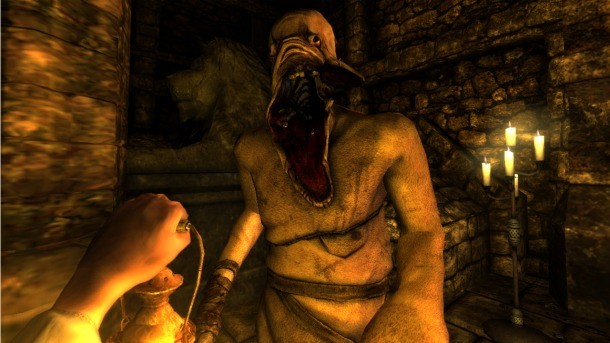
Regarding your other point, I think there may still be a small amount of people interested in throwbacks to the clunky horror games of yesterday. Look at something like Deadly Premonition and the cult status it acquired. And I know this is a Game Informer microcosm, but I’ve seen quite a few Replay fans post pictures of their own Overblood and Blue Stinger copies. These are really awful games that people paid actual money for in an era when gaming has never been better. So yeah, I think it’s probably just a matter of time before smaller indie developers start making retro horror games in the same way Yacht Club Games made Shovel Knight for fans of NES action games, for example. What do you think? Will it happen?
Harry: I certainly hope so, but I’m afraid the market wouldn’t be there for it. Oftentimes there seems to be a large and vocal fan base for any number of products right up until it comes time to pay up. Your Blue Stinger and Amnesia examples are interesting to me, because I think they are both different ways to approach the sort of legacy of survival horror. Blue Stinger was clearly a derivative of the Resident Evil formula, but tried to evolve the rigid ideas (pretty unsuccessfully, it turned out) to a 3D world. And no one calls Amnesia survival horror. They generally put it into another bizarre category like “hard horror.” So maybe it isn’t the survival-horror idea that needs to be discarded, but rather the rigid designation of the term. Like you said above, The Evil Within and Amnesia both fit the bill for survival horror well, except for the fact that neither of them possesses the poorly explained and maybe even unknowable aspects that make a survival-horror game “survival horror.” If we can get past those, I think it might be a better time for survival-horror fans than ever. When people ask me what my favorite survival-horror game is, for instance, I usually say The Last of Us.
Tim: I’ve never actually heard the term “hard horror” before. Actually, it always seems like people put Amnesia in its own little category, and then describe similar titles like Among the Sleep or Alien: Isolation as being like Amnesia.
And yeah, The Last of Us definitely has elements of horror and survival in it, but to pop it into the “survival horror” category just seems off, doesn’t it? I just feel like the term is so outdated, I personally don’t see why it needs to stick around at all.
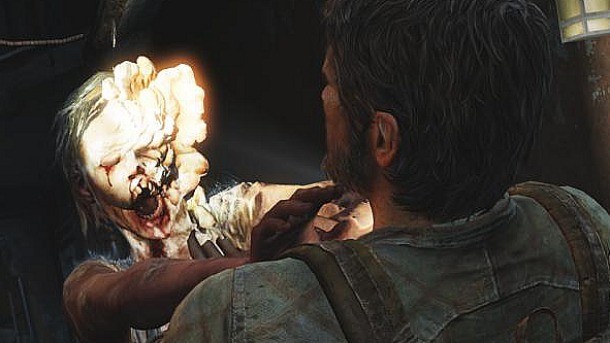
Harry: I may have just made up “hard horror.” Please nobody else use it; it’s mine. It’s funny that you say people just use “Amnesia” as its own descriptor now, because I honestly think that’s probably how “survival horror” came about in the first place; Capcom called Resident Evil “survival horror” and then rather than just saying a game was “Resident Evil like” or had elements similar to Resident Evil, people would say “survival horror” as a kind of shorthand.
I agree that calling The Last of Us survival horror seems off, which is why I think it’s a good example. It fits just about any of the categorizations you could apply to survival horror, except that it is recent. It’s ironic, but I think the survival horror designation may have originally been descriptive and helpful, but now it seems reductive. To call The Last of Us “just” a survival-horror game is what feels off to me, and maybe that’s what is putting me off the term in general. To apply such a restrictive genre in this day and age, where video games are doing more things at once, doesn’t really work anymore. Maybe “survival horror” does need to die, but maybe it’s an example of how genre designations in general are starting to get silly.
Tim: Well, I think we’re both in agreement. Whoever the marketing person was over at Capcom that coined the term “survival horror” is a genius, because we’re still talking about it almost two decades later. Mikami made Resident Evil, and he’s making the most what seems to be one of the most classic RE-style games in a long time, yet I still think the genre name should die a fast, sudden death. Like Jill Valentine getting caught at “Caution” level health by a Hunter. Just immediate decapitation and a lot of blood.
Harry: I wonder why “survival action” didn’t take off the way “survival horror” did. More importantly, where’s my Dino Crisis reboot? I think I agree with you, survival horror should be decapitated. However, I don’t know that it will be. It seems like even though we agree that it’s an outdated term, it’s still an idea that has a lot of clout in the gaming world. Mikami is an excellent example. We’re all still chasing the idea, if not the execution (heh heh). And why not? I like scary, intense games. Mikami is a really good game designer. If the idea of survival horror helps bring about great games, maybe it isn’t so bad. We should just remember that it is a headless concept too, one that we shouldn’t take too seriously as a description. Headless, like a zombie! See what I did there?!
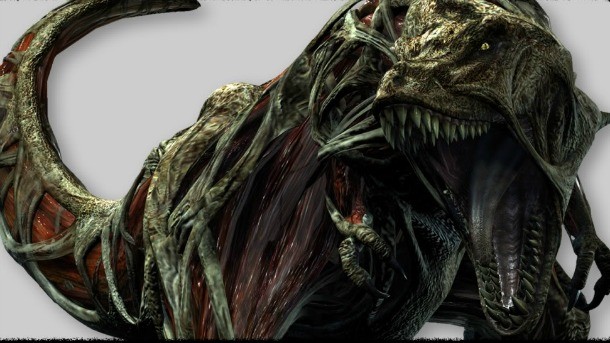
Tim: I want another Dino Crisis like you wouldn’t believe. Also, why not a Resident Evil/Dino Crisis crossover with zombie dinosaurs? These games make themselves, I tell ya!
And if enduring continued use of the term “survival horror” means we get more triple-A horror games like The Evil Within, then I’m for it. I’m super ready. We’ve got Dying Light, Alien: Isolation, and a new RE-style Mikami game are on the horizon. For horror fans, the future is looking pretty bright.
Harry: Or pretty dark, considering the subject matter. Nevermind. I stopped paying attention when you wrote zombie dinosaurs. I’ll be writing the script to Resident Crisis all night.
Tim: Dino Evil!

